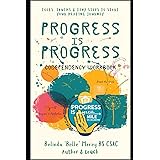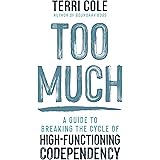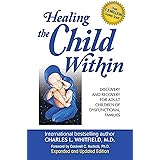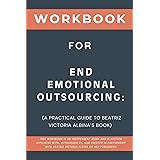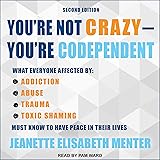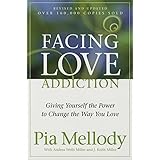It is estimated that hundreds of millions of individuals globally are affected by substance use disorders, with millions more impacted indirectly each year. This grave societal challenge, as highlighted in the video above, frequently leads to the destruction of countless lives and families. While drug addiction might weaken the body and cloud the mind, it is crucial to recognize that pathways to recovery are available, offering hope and a chance for a brighter future.
Understanding the Facets of Drug Addiction
Drug addiction, formally known as substance use disorder (SUD), is a complex brain disease characterized by compulsive drug seeking and use, despite harmful consequences. According to the National Institute on Drug Abuse (NIDA), addiction is considered a chronic, relapsing brain disease, indicating that it can be treated, but relapse is possible.
The journey into addiction often begins subtly, with various factors contributing to initial drug use. For instance, peer pressure is frequently cited as a primary instigator, particularly among younger populations. One study indicated that over 50% of adolescents who reported trying drugs did so because their friends were doing it, illustrating the powerful influence of social circles.
Initial Triggers: Beyond Peer Pressure
Curiosity also plays a significant role, as individuals may be drawn to experiment with substances without fully understanding the severe risks involved. Many do not realize that even a single instance of drug use can initiate changes in brain chemistry, making subsequent resistance more challenging. The allure of the unknown can unfortunately overshadow rational decision-making.
Conversely, frustration or emotional distress can lead individuals to seek solace in drugs as a coping mechanism. For those struggling with underlying mental health conditions, such as depression or anxiety, substances might be used to self-medicate, even if only providing temporary relief. It has been observed that roughly half of all individuals who experience a mental illness will also experience a substance use disorder at some point in their lives, underscoring the interconnectedness of these challenges.
The Devastating Consequences of Substance Dependence
Once a cycle of dependence is established, the consequences of drug addiction are far-reaching and deeply damaging. Significant health issues are frequently observed, impacting nearly every system of the body. For example, prolonged substance abuse can lead to severe cardiovascular problems, liver damage, kidney disease, and neurological impairment.
Moreover, a profound loss of self-control is experienced by those battling addiction, where the compulsion to use drugs overrides rational thought and personal values. This erosion of control often contributes to substantial social problems, including strained family relationships, loss of employment, financial instability, and legal difficulties. It is not uncommon for individuals struggling with addiction to face alienation from loved ones and a decline in their overall quality of life.
Pathways to Recovery: Awareness and Intervention
Despite the destructive power of addiction, solutions are indeed found through a combination of awareness, strong willpower, and proper medical help. Education is a critical component of awareness, as accurate information about the risks of drug use can prevent initiation. Prevention programs in schools and communities have been shown to reduce rates of substance abuse among youth by fostering informed decision-making.
However, willpower alone is rarely sufficient to overcome entrenched addiction, as the brain’s reward system becomes hijacked by the substance. It is commonly understood that addiction is a chronic disease requiring comprehensive treatment, not merely a lack of moral strength. Professional medical intervention is, therefore, an indispensable element of successful recovery, addressing both the physical and psychological aspects of dependence.
Societal Roles in Guiding Youth
The collective effort of parents, teachers, and society as a whole is paramount in guiding youth toward healthy lifestyles. Parents are instrumental in establishing clear boundaries and fostering open communication about the dangers of drugs. Research consistently indicates that adolescents who feel connected to their families and have supportive adult role models are less likely to engage in substance abuse.
Teachers, in their capacity as educators, play a vital role in integrating drug prevention education into curricula, equipping students with refusal skills and a realistic understanding of addiction’s impact. Furthermore, society must contribute by creating supportive environments that offer positive alternatives for young people, such as recreational activities, mentorship programs, and access to mental health services. These communal efforts reinforce a culture of well-being and resilience against substance misuse.
Rebuilding Lives: Rehabilitation and Counseling
For those already caught in the grip of addiction, rehabilitation centers and various forms of counseling are critical resources that help victims rebuild their lives. Rehabilitation services are broadly categorized into inpatient and outpatient programs, each offering different levels of support. Inpatient facilities provide a structured, supervised environment away from potential triggers, while outpatient programs allow individuals to continue living at home and maintain daily responsibilities, offering flexibility that can be crucial for many.
Counseling, whether individual, group, or family-based, forms the cornerstone of psychological recovery. Therapeutic approaches like Cognitive Behavioral Therapy (CBT) are widely utilized to help individuals identify and change problematic thoughts and behaviors related to drug use. Motivational Interviewing is another effective technique, aimed at helping people explore and resolve their ambivalence about change, thereby strengthening their commitment to recovery. These forms of support are systematically integrated to address the multifaceted challenges of drug addiction, facilitating sustainable healing and promoting a return to a fulfilling life free from substance dependence.


